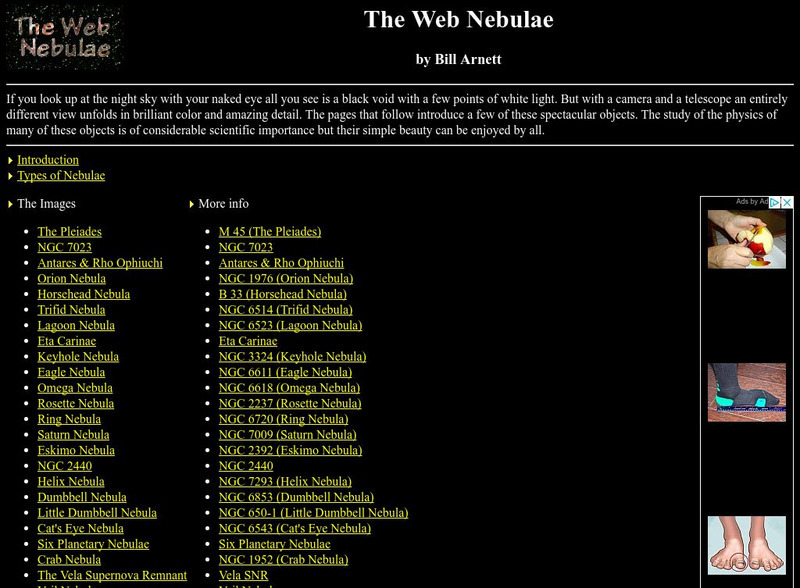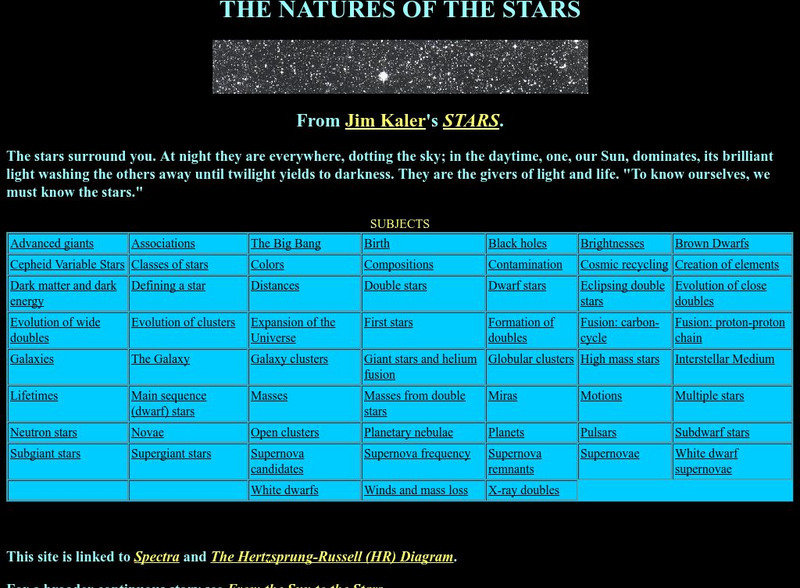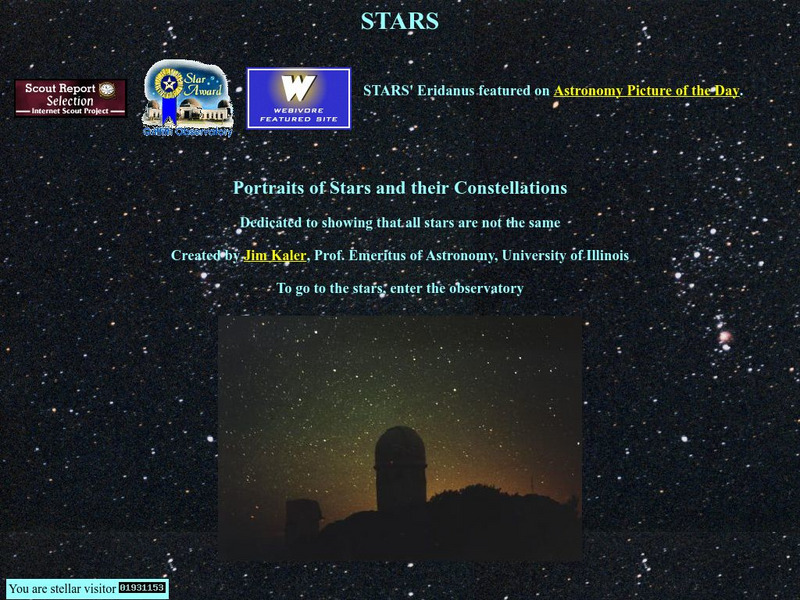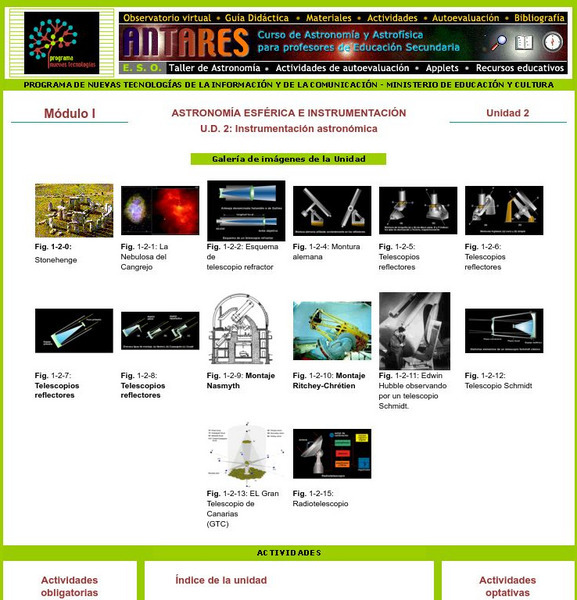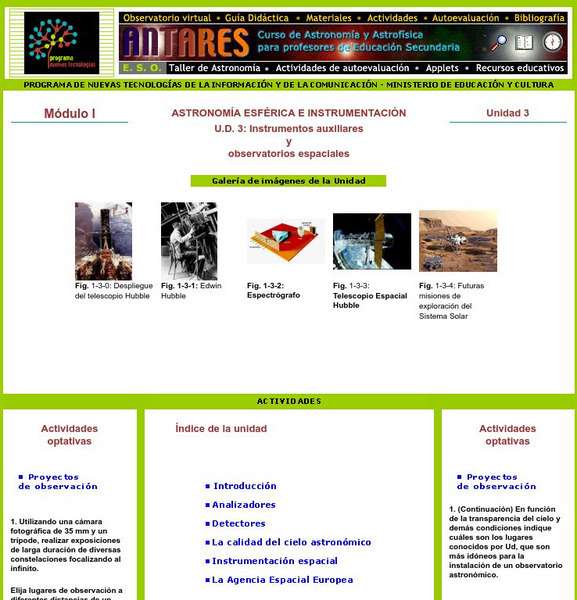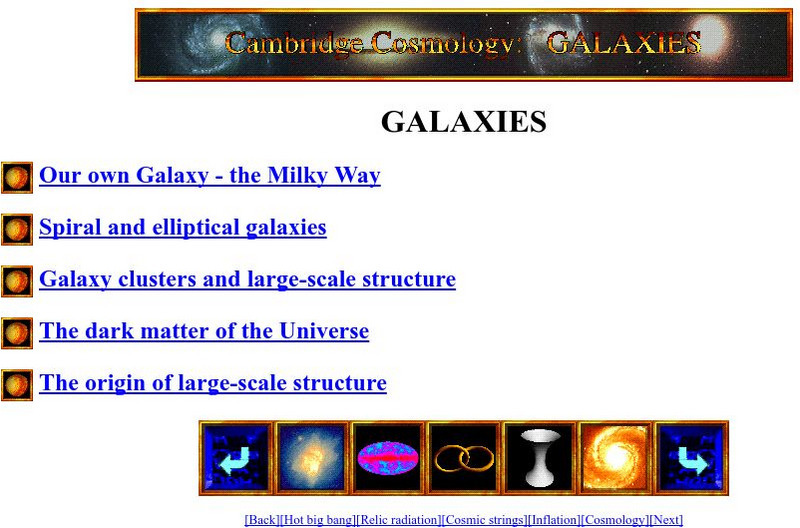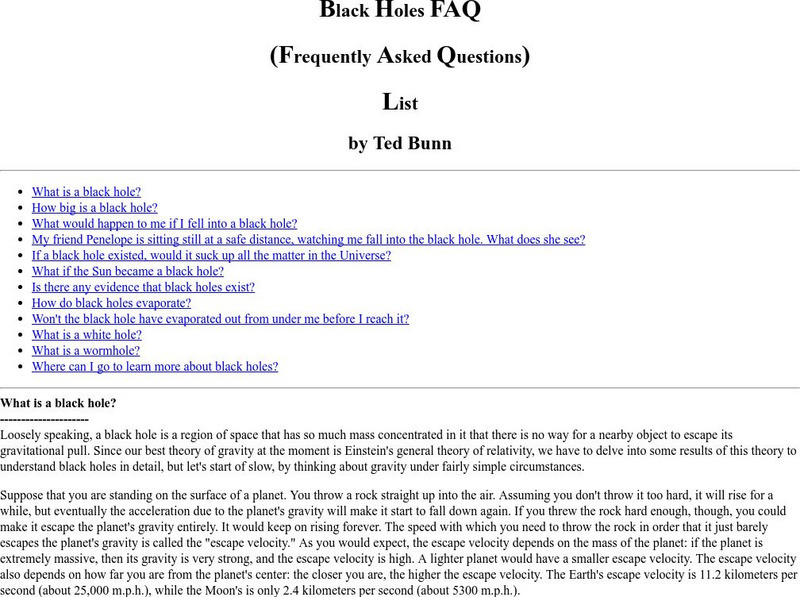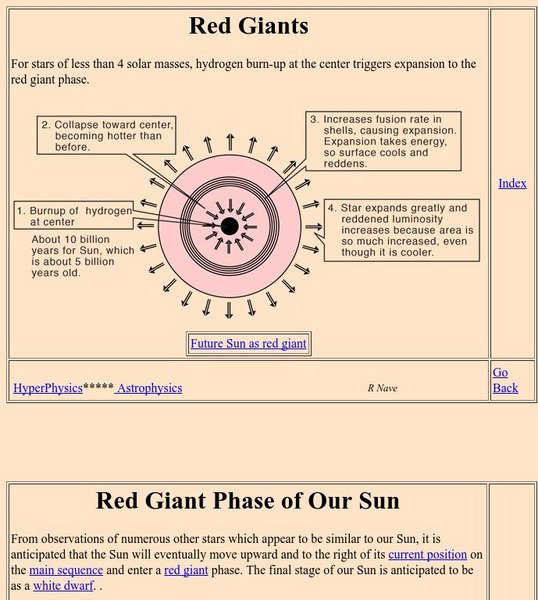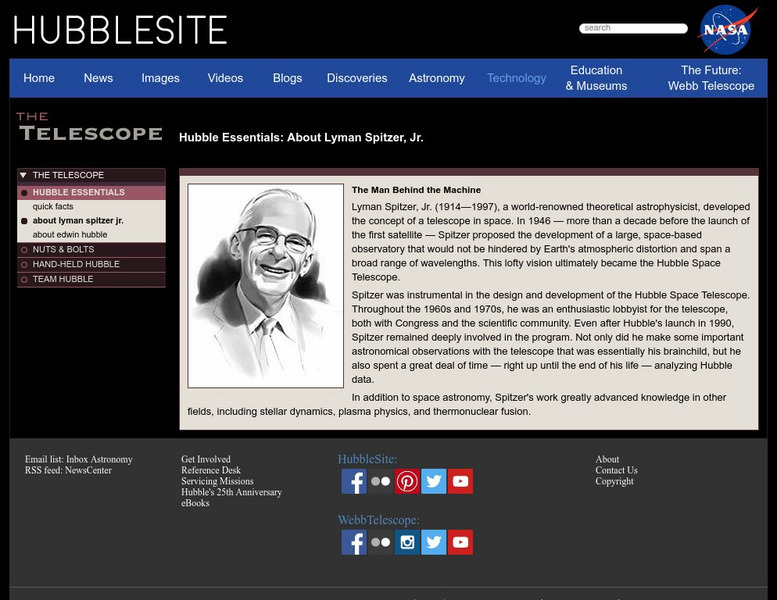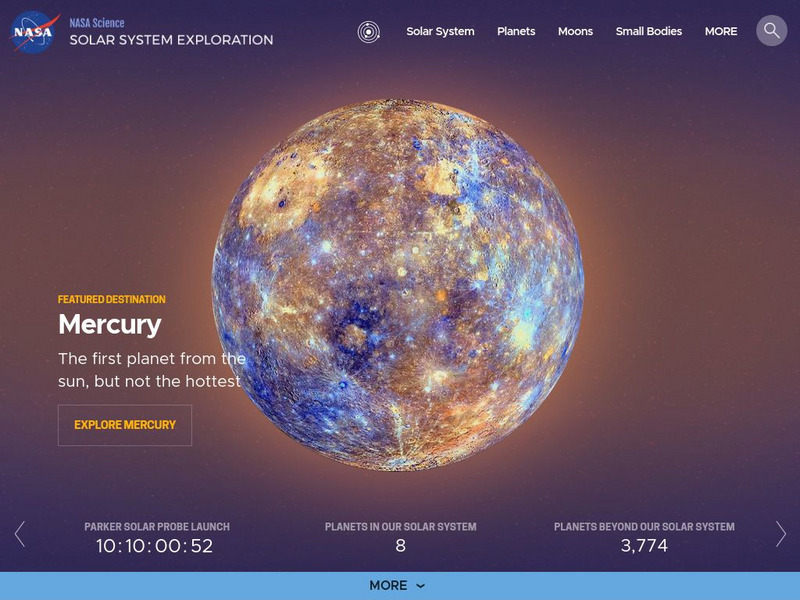PBS
Pbs Teachers: Scientific American: Science in Paradise: Big Dish
Investigate the science of radio astronomy, and create a model of a curved reflecting dish that will work like the Arecibo detector to detect electromagnetic waves. Explore risk using a risk space grid.
E-learning for Kids
E Learning for Kids: Science: Madagascar: What Is the Solar System?
Patrick loves being a pirate, but he'd prefer to be an astronomer. Join him, and learn about everything high in the sky like the moon, stars, and asteroids.
Nine Planets
Nine Planets: The Web Nebulae
This site from Nine Planets provides introductory material about nebulae, information and images of several types of nebulae, information on Edwin Hubble, and additional related sites are provided.
University of Illinois
University of Illinois: Stars and Constellations: Neutron Stars and Pulsars
This resource provides a brief description of the relationship between a neutron star and a pulsar. It details the pulsing rate and death of a pulsar.
University of Illinois
University of Illinois: Stars and Constellations
A large collection of information about and photos of the starts and constellations in the sky.
University of Oregon
The Electronic Universe: Ccd Images of Planetary Nebulae
Basic characteristics of planetary nebulae and the relationship to stellar evolution is presented along with many detailed images.
Ministerio de Educación (Spain)
Ministerio De Educacion: Instrumentacion Astronomica Modulo I Unidad 2
In this unit you will combine all the major components of a telescope to obtain the desired system for different types of astronomical observations.
Ministerio de Educación (Spain)
Ministerio De Educacion: Instrumentos Auxiliaries Modulo I Unidad 3
In this unit you will learn the main advantages and disadvantages offered by the refractor and reflector telescopes for a particular observation. You will also learn about the main types of telescopes.
Ministerio de Educación (Spain)
Ministerio De Educacion: Diagrama H R Modulo Ii Unidad 3
In this unit you will study the different types of luminosity, the effective temperature of the stars and the Hertzsprung-Russell diagram.
Ministerio de Educación (Spain)
Ministerio De Educacion: Espectros Estelares Modulo Ii Unidad 2
In this module you will study the composition of stars. You also will be able to classify them through the virtual observatory.
Virginia Tech
Virginia Tech: Frequently Asked Questions About Quasars
This site from Virginia Tech provides answers to a list of questions about quasars.
Other
University of Cambridge Cosmology: Galaxies
This site from the University of Cambridge allows you to view information on spiral, elliptical, and Milky Way galaxies, as well as galaxy clusters. Provides basic facts about each one.
University of California
University of California Berkeley: Black Holes Faq
A detailed list of questions and answers concerning black holes that defines black holes and describes their basic physics and characteristics.
NASA
Nasa: Imagine the Universe: White Dwarfs
Brief description of white dwarfs with respect to their position in the life cycle of stars, the density of white dwarfs, the emissions of white dwarfs, and the temperatures associated with them.
Georgia State University
Georgia State University: Hyper Physics: Red Giants
Describes the red giant star's development stages and the scenario of our sun as a red giant. Diagrams are used to present the information.
NASA
Nasa: Wmap: Fate of the Universe
A general look at the expansion of the universe and the Big Bang theory.
Enchanted Learning
Enchanted Learning: Crafts for Kids
Choose from dozens of simple crafts including activities for the holidays, animal crafts and much more.
Harvard University
Field Guide to X Ray Sources: Brown Dwarfs
Brown Dwarfs are explained. Includes illustrations.
Harvard University
Quasars and Active Galaxies
This site provides information about quasars and active galaxies. Includes a glossary of important terms.
Harvard University
Chandra X Ray Observatory Center: X Ray Pulsar
X-ray pulsars are explained. Features a Java applet that simulates a pulsar and allows the viewer to control the rotational speed.
Space Telescope Science Institute
Hubble Site: Lyman Spitzer Jr.
At the HubbleSite you can learn about Lyman Spitzer's (1914?1997 CE) inventions and accomplishments in the science field.
Curated OER
Smithsonian Institution Archives: Jacqueline L. Schroedter
Jacqueline L. Schroedter, a scientist at Lockheed Missiles and Space Company when this photograph was taken, had earned a B.S. in astronomy from University of Arizona. The company-supplied caption said: "She is active in the...
NASA
Nasa: History of Venus Transit
NASA site recounts the history of the Venus Transits that have occurred over the past centuries and the various descriptions astronomers have written about them.
Other popular searches
- Astronomy and Space Science
- Astronomy and Space
- Astronomy/space
- Preschool Astronomy/space
- "Astronomy and Space Science
- Astronomy and Space Lesson


